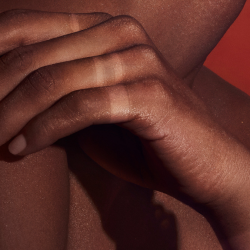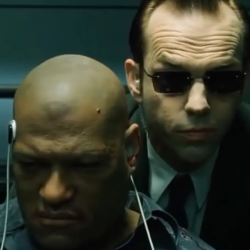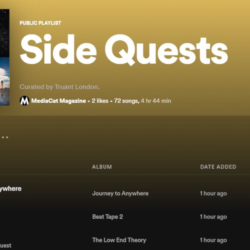As far as industries go, advertising, more than most, can be seen as a side quest…
An activity that is an enjoyable challenge, but not necessarily essential to the main mission.
The number of people who just pop in while their real attention lies elsewhere is high. From actors, including Alec Guinness and Hugh Grant, to writers, like James Patterson and Salman Rushdie (not to mention consorts of global superstars, such as David Furnish), advertising has provided a side quest that allows its participants to support themselves while concentrating on their true calling.

There are many reasons for this. First, the creative side of the job has been known to leave its practitioners with a looser, more flexible timetable. If you can think up ad ideas during your morning shower, you free up time to go to auditions during lunch; if you get 48 hours to work on a brief and crack it in ten minutes, you can spend the rest of the time writing The Satanic Verses (1988).
Yes, that situation has changed over the last ten years, with longer hours and more output becoming the order of the day, but I still know creatives who write books on the side, and indeed, I did that myself while holding down an ECD position. Advertising was not exactly my side quest, but if my ambition had been to become an author, copywriting would have given me all the time and money I needed to give it a shot.
The other way advertising can act as the perfect side quest is in the multiplicity of doors that it opens. If you’re a bus driver or a soldier you’re unlikely to experience much filming, sound recording, editing, photography, acting, directing, design etc. But if you make ads you see all those jobs and more on a regular basis.
Ridley Scott, Jonathan Glazer and Taika Waititi have all used ads as a side quest to making great movies, and they still do
Shooting commercials makes money, passes time and allows for the exploration of new techniques at someone else’s expense. That makes it the perfect side quest to the main aim of building and maintaining a stellar career in cinema.
I once asked my boss if he’d pay for me to go on Robert McKee’s screenwriting course. He said yes, and I spent three days on a side quest to a side quest, learning how to write better advertising scripts, but also better novels.
Of course, many people see advertising itself as their central mission, with writing or photography serving as a creative hobby side quest that can take place without client interference. Those people might also argue that unless you take advertising seriously, constantly feeding it with copious amounts of work and attention, then you can never truly succeed at it. That might be true, but surely keeping it as the side quest is a healthier way to look at your time on the planet.
Which brings me to a deeper, more existential question: what is the side quest, and what is the main mission? If life itself is the point of the game, then everything is either an essential part of that, or an optional way to gain the XP and V-Bucks that can bolster the more important reasons for spending time on this planet: learning, experiencing, growing, connecting and loving.
Many of us spend our whole lives thinking that we’re playing the proper game before coming to the understanding that we were only ever on a large and elaborate side quest, and that’s OK. All I would say is that none of us were put here to finesse the Instagram feed of a chocolate bar, so if that’s how you’re spending most of your time it might be a good idea to move it to the side and concentrate on something more fulfilling.
Featured image: Andrew Te / Unsplash































